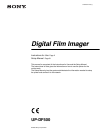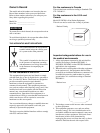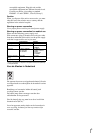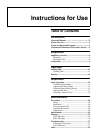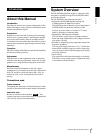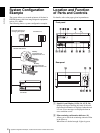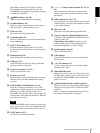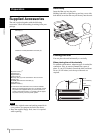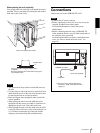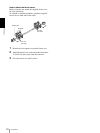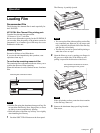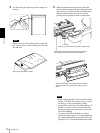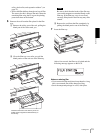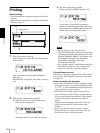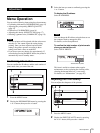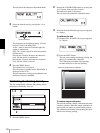
Introduction
About this Manual / System Overview
5
Introduction
About this Manual
Introduction
Describes the features and system configuration of the
digital film imager. Also provided is information on the
location and function of parts.
Preparation
Explains the steps involved in placing and connecting
the unit prior to getting started - checking the supplied
accessories and assembly. Once all assembly and all
connections have been made, there should be no need to
perform these operations again during normal printing
operations.
Operation
Describes loading of the film tray and blue thermal film,
and actual printing operations.
Adjustment
Describes how to make adjustment such as sharpness,
calibration and density adjustment, and to how to select
gamma curve, using the menus displayed on the LCD.
Miscellaneous
Provides technical information in the unit, regular
maintenance, how to handle error messages displayed in
the LCD, and how to deal with paper jams. Also, an
index will assist you in locating the desired section
quickly.
Conventions used
Cross reference
Throughout this manual you will find references to other
sections of the manual that contain related information.
Important note
Be sure to read the sections marked . They
explain points that you should be aware of to operate the
unit correctly and prevent malfunctions.
System Overview
The UP-DF500 digital film imager is a thermal printer
designed to reproduces image data in DICOM format
sent via the network.
The UP-DF500 has the following functions’
• Equipped with DICOM (Digital Imaging and
Communications in Medicine) features
The DICOM portion of the unit receives image data in
DICOM format sent from the modality via the
network, processes them at 14 inches × 17 inches
either by enlarging or reducing them.
• High quality and high print resolution
The unit allows you to print out in high-resolution
black and white (4096 shades) and in high-resolution
print mode (320 dpi).
• Suitable for diagnosing using image data captured by
diagnosis equipment
The unit prints image data on the 14 × 17 inches blue
thermal film, and these prints are used for diagnosing.
Also, the unit provides sufficient high picture quality
for image diagnosis.
• Space saving
You can place the unit either horizontally or vertically.
This allows you to design system configuration freely
in accordance with the location.
Note



